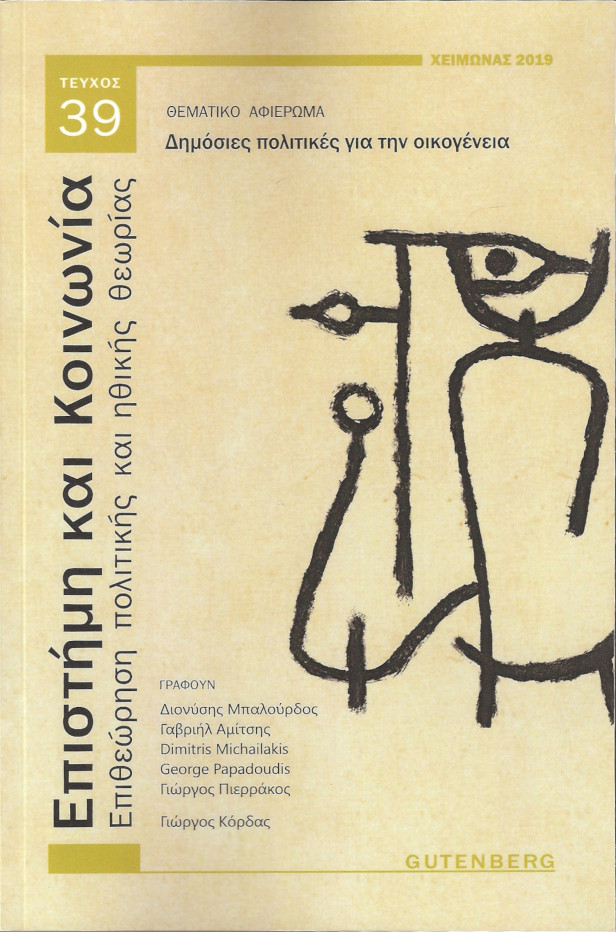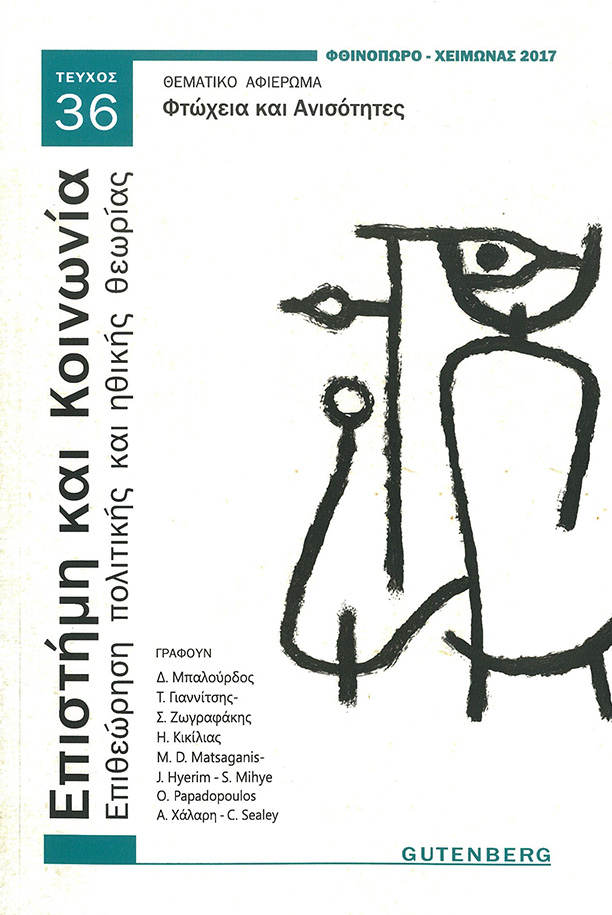Έλλειμμα γεννήσεων και πολιτικές για την οικογένεια στην Ελλάδα: Μία πρώτη προσέγγιση
Abstract
Στην εργασία αυτή περιγράφεται η εξέλιξη της γονιμότητας στην Ελλάδα και οι σύγχρονες πολιτικές που είναι φιλικές για την οικογένεια. Με βάση τις κυρίαρχες θεωρήσεις και τα εμπειρικά δεδομένα παράγοντες όπως η οικονομική ανάπτυξη, η θεσμική ανανέωση και η ανάπτυξη του κράτους πρόνοιας καθορίζονται ως προσδιοριστές της γονιμότητας και ιδιαίτερα της αναβολής της τεκνοποίησης.
Προτείνει ότι η Ελλάδα χρειάζεται πολιτικές που στοχεύουν στη δημογραφική ανανέωση με περιορισμό του κόστους απόκτησης παιδιών για τους γονείς και κυρίως του υψηλού κόστους ευκαιρίας που επιβαρύνει τις γυναίκες. Αν η Ελλάδα μπορεί να επηρεάσει την αναγκαία παραδειγματική βάρδιες σε ρόλους των δύο φύλων και την κοινωνία θα προετοιμάσει το δρόμο για Ολιστικές λύσεις και αποκατάσταση γονιμότητας. Αν η Ελλάδα μπορεί να επηρεάσει τις αναγκαίες αλλαγές στους ρόλους των δύο φύλων και την κοινωνία θα προετοιμάσει το δρόμο για προοδευτικές λύσεις και αποκατάσταση γονιμότητας.
Article Details
- How to Cite
-
Μπαλούρδος Δ. (2020). Έλλειμμα γεννήσεων και πολιτικές για την οικογένεια στην Ελλάδα: Μία πρώτη προσέγγιση. Science and Society: Journal of Political and Moral Theory, 39, 7–51. https://doi.org/10.12681/sas.21113
- Section
- Articles

This work is licensed under a Creative Commons Attribution-NonCommercial-ShareAlike 4.0 International License.
Authors who publish with this journal agree to the following terms:- Authors retain copyright and grant the journal right of first publication with the work simultaneously licensed under a Creative Commons Attribution-NonCommercial-ShareAlike License that allows others to share the work, not for commercial purposes, with an acknowledgement of the work's authorship and initial publication in this journal. If you remix, transform, or build upon the material, you must distribute your contributions under the same license as the original.
- Authors are able to enter into separate, additional contractual arrangements for the non-exclusive distribution of the journal's published version of the work (e.g., post it to an institutional repository or publish it in a book), with an acknowledgement of its initial publication in this journal.
- Authors are permitted and encouraged to post their work online (e.g., in institutional repositories or on their website) prior to and during the submission process, as it can lead to productive exchanges, as well as earlier and greater citation of published work (See The Effect of Open Access).




